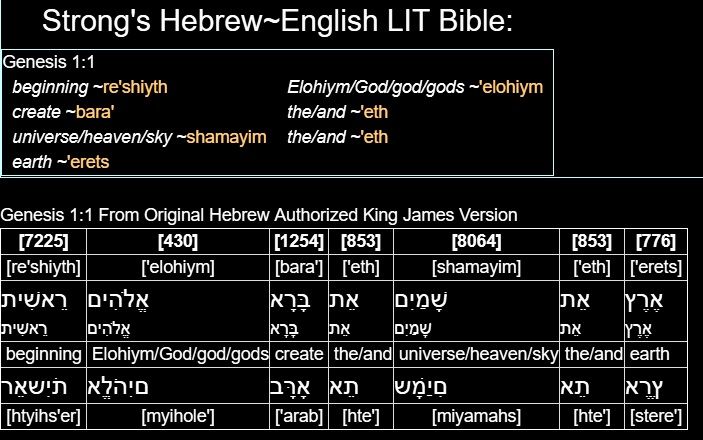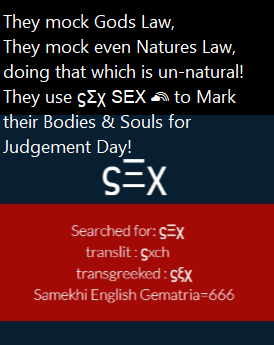| [2532] | [3739] | [3956] | [2046] | [3056] | [1519] | [5207] | [444] | [863] | [846] | [1161] | [987] | [1519] | [40] | [4151] | [863] | [3756] | [863] |
|---|---|---|---|---|---|---|---|---|---|---|---|---|---|---|---|---|---|
| [kai] | [hos] | [pas] | [ereo] | [logos] | [eis] | [huios] | [anthropos] | [aphiemi] | [autos] | [de] | [blasphemeo] | [eis] | [hagios] | [pneuma] | [aphiemi] | [ou] | [aphiemi] |
| καί | ὅς | πᾶς | ἐρέω | λόγος | εἰς | υἱός | ἄνθρωπος | ἀφίημι | αὐτός | δέ | βλασφημέω | εἰς | ἅγιος | πνεῦμα | ἀφίημι | οὐ | ἀφίημι |
| and, also, both, but, even, for, if, o.. | one, (an-, the) other, some, that, wha.. | all (manner of, means), alway(-s), any.. | call, say, speak (of), tell | account, cause, communication, X conce.. | abundantly, against, among, as, at, (b.. | child, foal, son | human/people | cry, forgive, forsake, lay aside, leav.. | her, it(-self), one, the other, (mine).. | also, and, but, moreover, now | speak) blaspheme(-er, -mously, -my), d.. | abundantly, against, among, as, at, (b.. | most) holy (one, thing), saint | ghost, life, spirit(-ual, -ually), mind | cry, forgive, forsake, lay aside, leav.. | long, nay, neither, never, no (X man).. | cry, forgive, forsake, lay aside, leav.. |
| ίακ | ςὅ | ςᾶπ | ωέρἐ | ςογόλ | ςἰε | ςόἱυ | ςοπωρθνἄ | ιμηίφἀ | ςότὐα | έδ | ωέμηφσαλβ | ςἰε | ςοιγἅ | αμῦενπ | ιμηίφἀ | ὐο | ιμηίφἀ |
| [iak] | [soh] | [sap] | [oere] | [sogol] | [sie] | [soiuh] | [soporhtna] | [imeihpa] | [sotua] | [ed] | [oemehpsalb] | [sie] | [soigah] | [amuenp] | [imeihpa] | [uo] | [imeihpa] |
Luke12:10 From Original Authorized King James VersionLuke 12:10 And whosoever shall speak a word against the Son of man, it shall be forgiven him: but unto him that blasphemeth against the Holy Ghost it shall not be forgiven.
Luke 12:10 And whosoever shall speak a word against the Son of man, it shall be forgiven him: but unto him that blasphemeth against the Holy Ghost it shall not be forgiven.
Luke12:10 Strong's Greek~English LIT Bible:
Luke 12:10
and, also, both, but, even, for, if, o.. ~kai
one, (an-, the) other, some, that, wha.. ~hos
all (manner of, means), alway(-s), any.. ~pas
call, say, speak (of), tell ~ereo
account, cause, communication, X conce.. ~logos
abundantly, against, among, as, at, (b.. ~eis
child, foal, son ~huios
human/people ~anthropos
cry, forgive, forsake, lay aside, leav.. ~aphiemi
her, it(-self), one, the other, (mine).. ~autos
also, and, but, moreover, now ~de
speak) blaspheme(-er, -mously, -my), d.. ~blasphemeo
abundantly, against, among, as, at, (b.. ~eis
most) holy (one, thing), saint ~hagios
ghost, life, spirit(-ual, -ually), mind ~pneuma
cry, forgive, forsake, lay aside, leav.. ~aphiemi
long, nay, neither, never, no (X man).. ~ou
cry, forgive, forsake, lay aside, leav.. ~aphiemi
Samekhi's Greek LTR-RTL Greek Hebrew Bible Project
Luke 12:10
Strong's Dictionary Number: [2532] |
Strong's Dictionary Number: [3739] |
Strong's Dictionary Number: [3956] |
Strong's Dictionary Number: [2046] |
Strong's Dictionary Number: [3056] |
Strong's Dictionary Number: [1519] |
Strong's Dictionary Number: [5207] |
Strong's Dictionary Number: [444] |
Strong's Dictionary Number: [863] |
Strong's Dictionary Number: [846] |
Strong's Dictionary Number: [1161] |
Strong's Dictionary Number: [987] |
Strong's Dictionary Number: [1519] |
Strong's Dictionary Number: [40] |
Strong's Dictionary Number: [4151] |
Strong's Dictionary Number: [863] |
Strong's Dictionary Number: [3756] |
Strong's Dictionary Number: [863] |
Verses -> 1 2 3 4 5 6 7 8 9 10 11 12 13 14 15 16 17 18 19 20 21 22 23 24 25 26 27 28 29 30 31 32 33 34 35 36 37 38 39 40 41 42 43 44 45 46 47 48 49 50 51 52 53 54 55 56 57 58 59
The King James version of the Bible is Public Domain.


🌈Pride🌈 goeth before Destruction

When 🌈Pride🌈 cometh, then cometh Shame
Bible News
- The Greek Word Pharma in Revelation 18:23, Does it Refer to Big Pharma? - Thu, 07 Apr 2022 13:09:12
- If you are a country club church working out of a country club building who wants to have a Country Club Church Website... - Sat, 26 Feb 2022 20:45:41
- Gematria of the Egyptian Hieroglyphs - Fri, 25 Feb 2022 16:26:48
- Oldest Manuscript P47 shows Σ Sigma not Ξ Samekh for 60 in the 666 from Revelation 13:18 - Sun, 20 Feb 2022 09:30:56
- What does biblical “inerrancy” mean? | Richard Ostling - Patheos - Sun, 20 Feb 2022 09:29:08
- DC museum unveils rare 1,000-year-old Hebrew Bible - The Times of Israel - Fri, 18 Feb 2022 22:54:59
- Ancient Canaanite temple with statues of Baal found in southern Israel - Haaretz - Fri, 18 Feb 2022 22:53:28
- Inside the Lachish Temple, the Earliest Example of the Letter Samekh - The Daily Beast - Fri, 18 Feb 2022 22:44:02
- Israeli scholars discover corrections, erasures, revisions in oldest biblical manuscript - Haaretz - Fri, 18 Feb 2022 22:42:27
- Museum of the Bible returns hand-written gospels looted from Greece during the First World War - Art Newspaper - Fri, 18 Feb 2022 22:41:24
- Bible study: Ancient Jewish manuscript analysed using state-of-the-art cameras - Daily Mail - Fri, 18 Feb 2022 22:39:25
- Is a Long-Dismissed Forgery Actually the Oldest Known Biblical Manuscript? - The New York Times - Fri, 18 Feb 2022 22:32:39
- More Dead Sea Scrolls, second oldest Hebrew Bible manuscript, found after 60 years - ThePrint - Fri, 18 Feb 2022 22:30:23
- A Biblical Mystery and Reporting Odyssey: 1883 Fragments - The New York Times - Fri, 18 Feb 2022 22:24:46
- Lost Bible Fragment Recovered Among Dead Sea Scrolls | Lost Bible Fragment Recovered Among Dead Sea Scrolls - Patheos - Fri, 18 Feb 2022 22:14:35
- African Script Sheds Light on Evolution of Writing - DISCOVER Magazine - Fri, 18 Feb 2022 21:47:13
- Evidence of ‘biblical giants’ found in northern Israel - The Jerusalem Post - Fri, 18 Feb 2022 21:39:06
- Oldest precursor to letter S aka Samekhi was found in nine-letter Canaanite text unearthed in Israel - Fri, 18 Feb 2022 21:39:06
- In Tigray, Christianity May Be Erased - FSSPX.Actualités - FSSPX.News - Fri, 18 Feb 2022 14:12:41
- Rocket Science Confirms Biblical Creation - Answers In Genesis - Fri, 18 Feb 2022 13:28:44
.jpg)
Christian how we Support the Ministry
Industrial Electronic Repair
Industrial Monitor Repair
Power Supply Repair
ebay
Manufacture's Repaired
A B C D E F G H I J K L
M N O P Q R S T U V W X Y Z
Simple Rules for this Site!
Posted by Webmaster on Saturday, August 31 2002
- Web-Ministry is intended for the Glory of God.
- Please try to be respectful of God and to be reverent toward His Word, which is the Holy Bible.
- Some may not be Christian nor agree with Christian theology in general, but please be respectful of those that do and to Christendom in general.
- People from all walks of life and backgrounds of faith are welcome here, including the backslidden and nonbelievers, as well.
- We may not all agree... but we can agree to disagree, at least.
- However, any potential disagreements still need to remain civil in nature, and should stay as such.
- Please, just debate the points of your position, if necessary, and refrain from ad hominem attacks. Slandering and name calling serve no productive purpose.
- Posting rules are based upon decent conduct and generally acceptable chat behavior and, also, on Christian beliefs and morals found in the Holy Bible.
- Please refrain from using offensive language or obscenely suggestive innuendo.
- Usernames that are not becoming of basic common decency and morality are not to be used and may possibly result in membership cancellation.
- Refusing to follow forum rules may result in membership cancellation and possibly some or all applicable posts being deleted and if necessary... entire threads.
- If you feel these things to be unacceptable, please find another forum to post on.Thank you.
- dp,webmaster,Chrysoprasus,wilshine
Jesus Christ Forums
To the Glory of Jesus Christ!
Jesus Christ Forums Software Testing
Radio for Jesus 24/7
Hosted by $SamekhiAmI

Surplus by Samekhi
OR
Cash app $SamekhiAmI
Manufacture's Repaired
A B C D E F G H I J K L
M N O P Q R S T U V W X Y Z
Web-Ministry Created this page in 0.082796 seconds